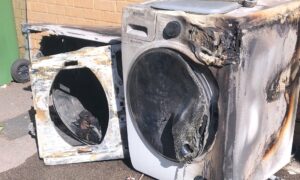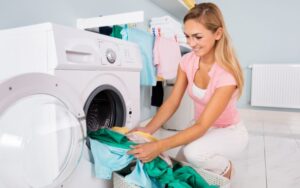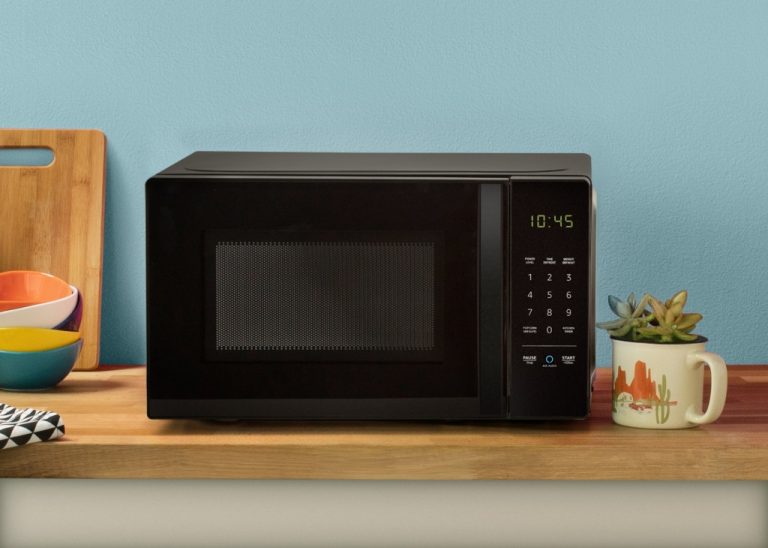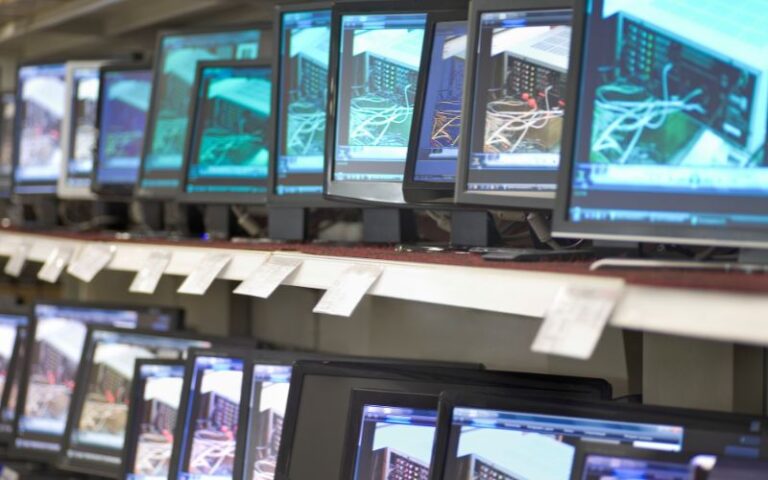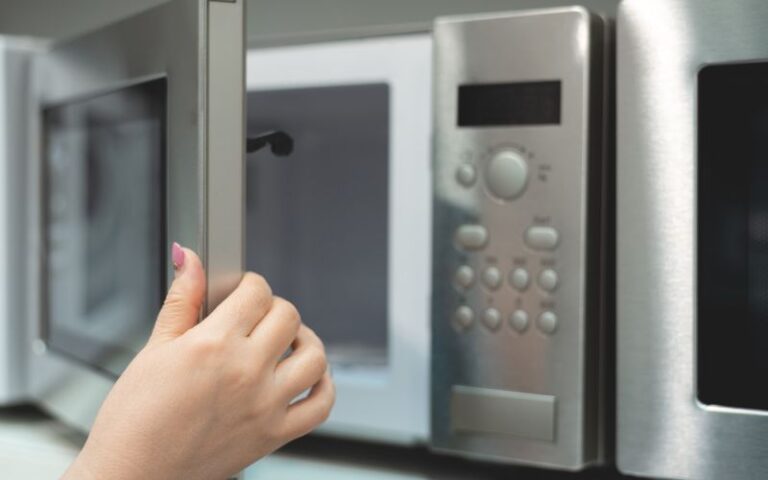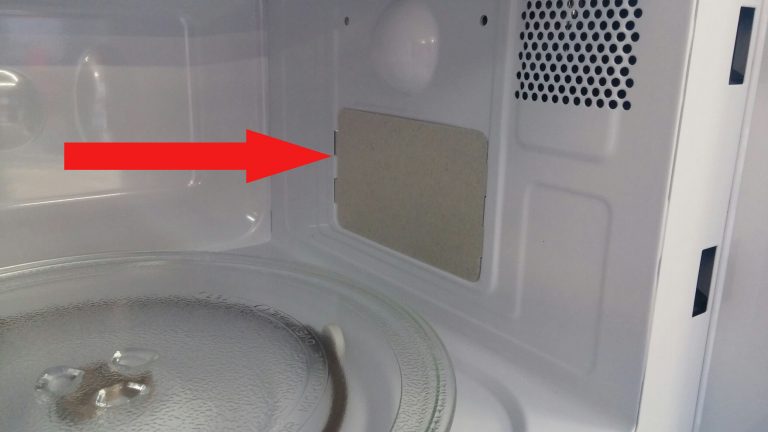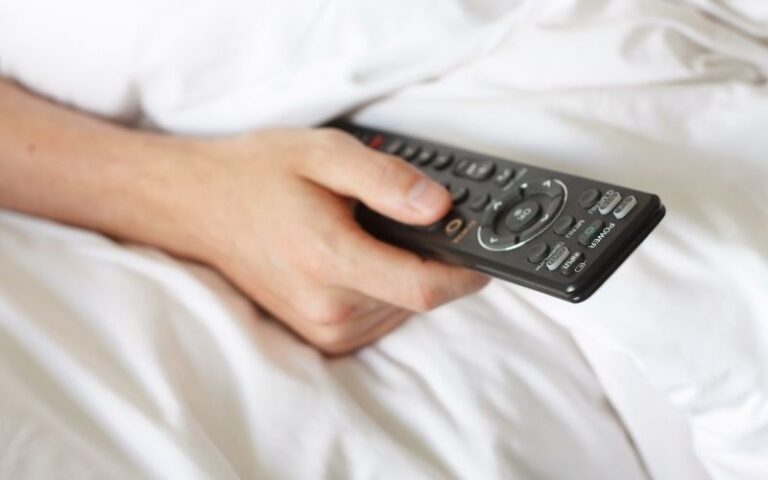3 Reasons Your Heat Pump Sounds Like A Washing Machine!
Heat pumps are unique because the system uses normal external air to heat and cool the air inside a building. The system performs effectively without a furnace.
The system is famous for making different kinds of sounds. One of these sounds is identical to a washing machine noise.
The sound can be loud and bothersome. Therefore, it is customary to wonder why the heat pump sounds like that.
The heat pump sounds like a washing machine during the startup and shutdown process. It also sounds like the screws are loose or the refrigerant leaks. Although, the first reason is typical for the system. However, the other two reasons mean the system is faulty and needs immediate permanent repair.
In this article, I will explain the causes of the heat pump sounding like a washing machine, how to identify them, and ways to fix the problems.
By the end, you will also understand other heat pump sounds.
Why Does My Heat Pump Sound Like a Washing Machine?
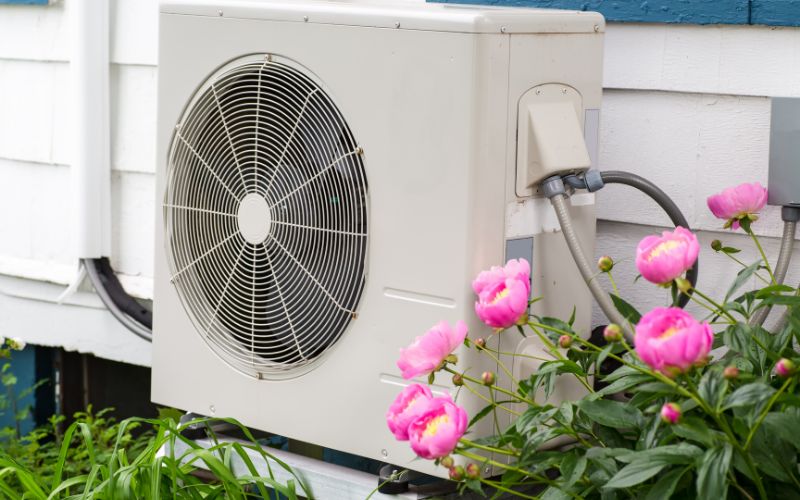
Your heat pump sounds like a washing machine because of several reasons. Although, the sound from your heat pump is an indicator to tell you something.
Most times, the sound is scary and loud, but you can easily relate to the sound if you understand the meaning. Luckily, your heat pump has solutions to the washing machine sound. However, you must know the reasons before you know how to fix them.
Here are the reasons for your heat pump sounds like a washing machine:
#1. Startup and Shutdown Process
The heat pump sounds like an unbalanced washing machine during startup. The sound comes from the compressor, which makes a vibration sound during the startup.
However, the sound lasts for a few minutes, stopping when the system starts running normally.
Also, the heat pump is likely to make the same sound when it shuts down, but the shutdown sound is not common and rarely occurs.
#2. Loosed Screws
A loud vibration sound identical to an unbalanced washing machine is usually due to loose screws in the heat pump.
Some screws or nuts on bolts holding the cover panel can come loose and cause vibration sounds.
Although, you could put down a rubber mat to reduce the vibration noise. However, it is not a permanent solution to the problem.
If you don’t troubleshoot the problem permanently, it could seriously damage other vital components in the heat pump.
#3. Leaky Pressurized Lines
The refrigerant level inside the heat pump must remain constant for the appliance to work effectively.
The refrigerant converts liquid to gas as it moves through the heat pump’s pressurized lines. Therefore, the refrigerant level needs to be stable in these lines.
However, the pressurized lines can leak over time, thereby resulting in a reduction in the refrigerant level.
When the refrigerant level decreases, the pressurized lines may likely make gurgling sounds as the heat pump runs.
The sound may be identical to when a washing machine is having trouble draining water. It would be best if you troubleshoot it immediately.
Is It Normal for a Heat Pump to Make Noise?
It is normal for a heat pump to make noise when the system is running perfectly. However, only a few sounds result from a properly functioning system.
Some of these sounds call your attention to an issue with the heat pump, while others may indicate that the system is working effectively.
For example, it is normal for the system to make Swoosh sounds during winter. The sound is usually a result of the heat pump going into defrost mode.
The appliances try to stay warm during winter and switch into defrost mode several times. In addition, the heat pump makes a soft humming sound as it runs.
It is normal for a system with several electrical components to hum while they transfer electricity gently. Therefore, you shouldn’t let it bother you.
Furthermore, the heat pump can produce a constant and smooth noise from the fan. The noise is due to the fan’s movement while it produces air for the system.
The air is responsible for the system’s ability to move heat in and out of the building. The sound is not very loud, and it is nothing bothersome.
Apart from these three sounds, plus the startup and shutdown sounds, any other noise is unusual and requires immediate attention. It is important to contact a technician to help you locate and fix unusual sounds.
Here is a table below to help you identify the abnormal sounds and their issues.
| Sounds | Causes |
|---|---|
| Loud metal banging | Fan hits against obstruction or a foreign object in the system. |
| Rattling noises | The faulty air handler or an excessively tight coolant pipe. |
| Grinding noise | A result of dirty motor bearings. |
| Buzzing sound | Faulty coils or contacts. |
| Gurgling sound | The coolant is due for a recharge. |
| Hissing | Air or refrigerant is escaping from the system. |
How Do I Fix a Heat Pump That Sounds Like a Washer?
It is best to contact a professional technician to fix any heat pump that sounds like a washer.
Although, you do not need to fix the startup and shutdown sound because it is normal. The sound stops on its own after a few minutes.
However, it would help if you troubleshoot other causes for your heat pump that sounds like a washing machine.
The solutions to these problems are below.
#1. Fixing Loose Screws
You must shut down the system, locate the loose screws, and tighten them. It will hold the cover panel firmly in position.
Then, you can turn it on to check if the sound persists. You can also put a rubber mat on the floor to absorb and reduce the vibrating sounds.
#2. Fixing Leaky Pressurized Lines
You need to contact a professional HVAC technician to diagnose and fix the leak. The technician will also need to add more refrigerant after fixing it.
Once the refrigerant level is balanced and there is no more leak, the gurgling sounds will stop.
Final Thoughts
In conclusion, the heat pump sounding like a washing machine isn’t unusual as long as:
- It sounds during startup and shutdown.
- The cover panel is firm.
- The refrigerant is not leaking through the pressurized lines.
These will help you determine when to fix the issue. But, it is best to seek professional help to fix every sound from the system.




